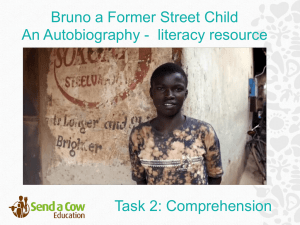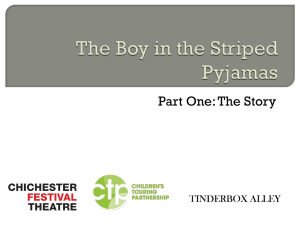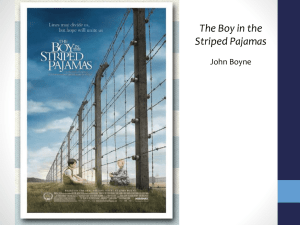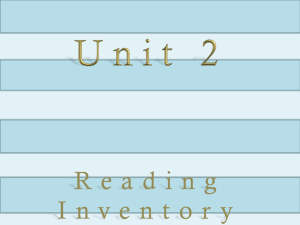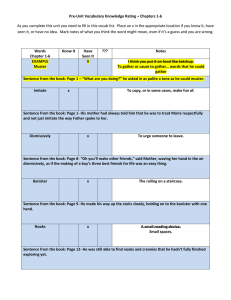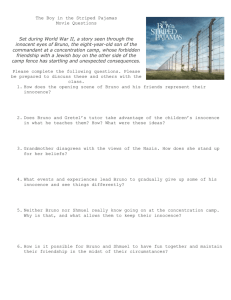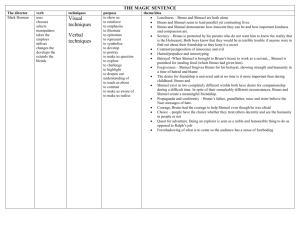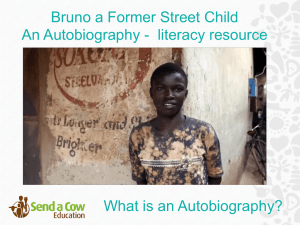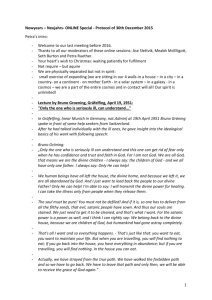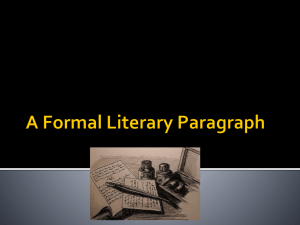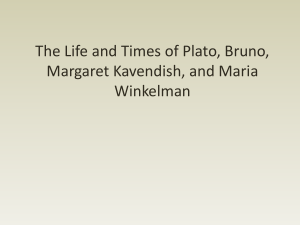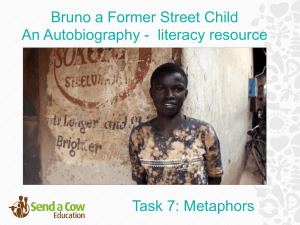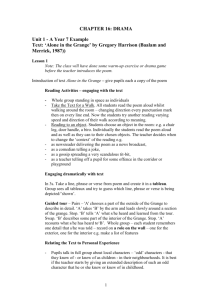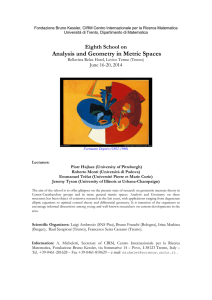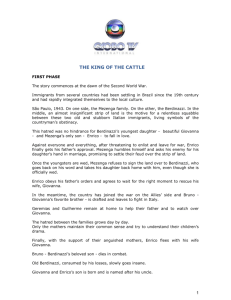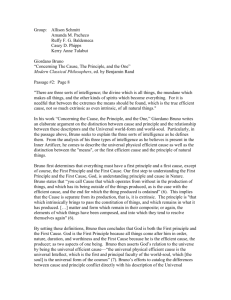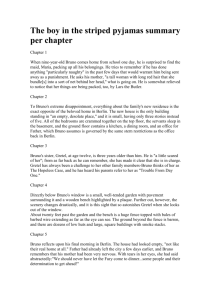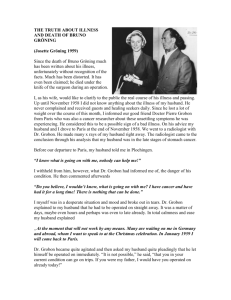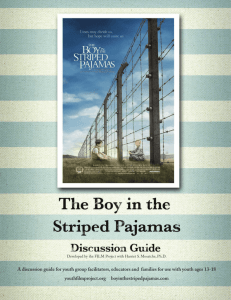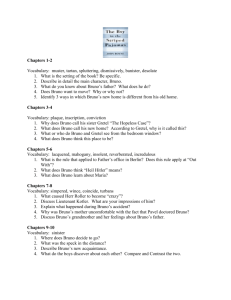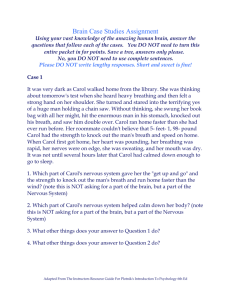The opposite of love is not hate, it`s indifference
advertisement
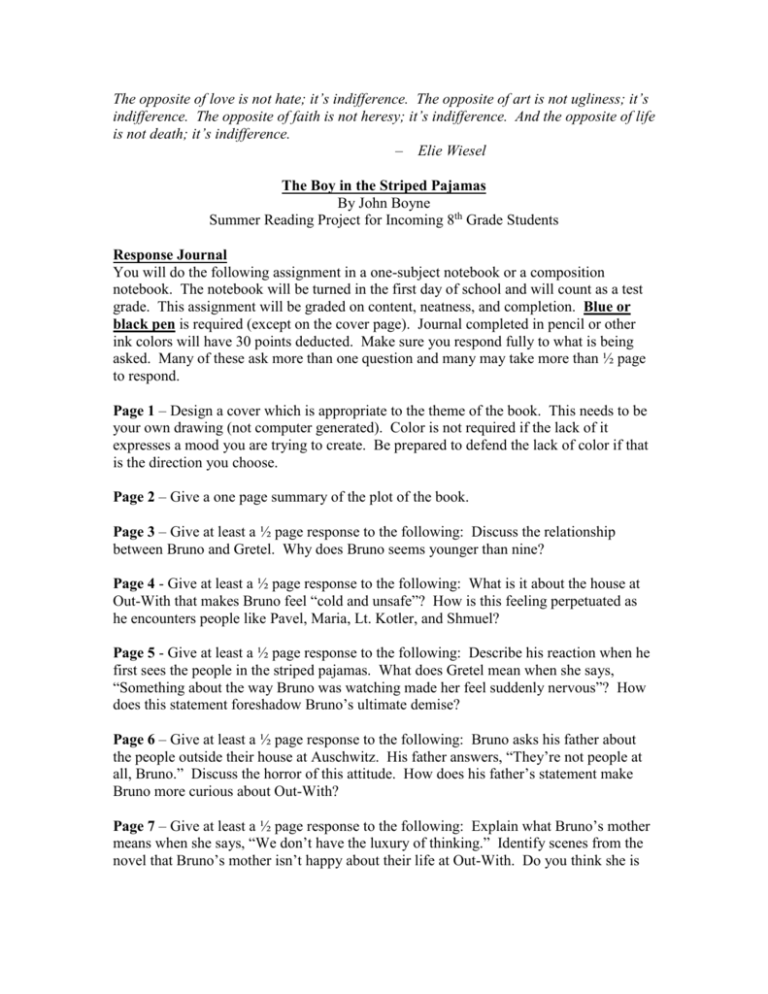
The opposite of love is not hate; it’s indifference. The opposite of art is not ugliness; it’s indifference. The opposite of faith is not heresy; it’s indifference. And the opposite of life is not death; it’s indifference. – Elie Wiesel The Boy in the Striped Pajamas By John Boyne Summer Reading Project for Incoming 8th Grade Students Response Journal You will do the following assignment in a one-subject notebook or a composition notebook. The notebook will be turned in the first day of school and will count as a test grade. This assignment will be graded on content, neatness, and completion. Blue or black pen is required (except on the cover page). Journal completed in pencil or other ink colors will have 30 points deducted. Make sure you respond fully to what is being asked. Many of these ask more than one question and many may take more than ½ page to respond. Page 1 – Design a cover which is appropriate to the theme of the book. This needs to be your own drawing (not computer generated). Color is not required if the lack of it expresses a mood you are trying to create. Be prepared to defend the lack of color if that is the direction you choose. Page 2 – Give a one page summary of the plot of the book. Page 3 – Give at least a ½ page response to the following: Discuss the relationship between Bruno and Gretel. Why does Bruno seems younger than nine? Page 4 - Give at least a ½ page response to the following: What is it about the house at Out-With that makes Bruno feel “cold and unsafe”? How is this feeling perpetuated as he encounters people like Pavel, Maria, Lt. Kotler, and Shmuel? Page 5 - Give at least a ½ page response to the following: Describe his reaction when he first sees the people in the striped pajamas. What does Gretel mean when she says, “Something about the way Bruno was watching made her feel suddenly nervous”? How does this statement foreshadow Bruno’s ultimate demise? Page 6 – Give at least a ½ page response to the following: Bruno asks his father about the people outside their house at Auschwitz. His father answers, “They’re not people at all, Bruno.” Discuss the horror of this attitude. How does his father’s statement make Bruno more curious about Out-With? Page 7 – Give at least a ½ page response to the following: Explain what Bruno’s mother means when she says, “We don’t have the luxury of thinking.” Identify scenes from the novel that Bruno’s mother isn’t happy about their life at Out-With. Do you think she is unhappy being away from Berlin or angry about her husband’s position? How does Bruno’s grandmother react to her son’s military role? Page 8 – Give at least a ½ page response to the following: When Bruno and his family board the train for Auschwitz, he notices an overcrowded train headed in the same direction. How does he later make the connection between Shmuel and that train? How are both trains symbolic of each boy’s final journey? Page 9 – Give at least a ½ page response to the following: Bruno issues a protest about leaving Berlin. His father responds, “Do you think that I would have made such a success of my life if I hadn’t learned when to argue and when to keep my mouth shut and follow orders?” What question might Bruno’s father ask at the end of the novel? Page 10 – A pun is most often seen as humorous. But, in this novel the narrator uses dark or solemn puns like Out-With and Fury to convey certain meanings. Bruno is simply mispronouncing the real words, but the author is clearly asking the reader to consider a double meaning to these words. Discuss the use of this wordplay as a literary device. What is the narrator trying to convey to the reader? How do these words further communicate the horror of the situation? Page 11 – Give at least a ½ page response to the following: When Bruno dresses in the filthy striped pajamas, he remembers something his grandmother once said, “You wear the right outfit and you feel like the person you’re pretending to be.” How is this true for Bruno? What about his father? What does this statement contribute to the overall meaning of the story? Page 12 – Give at least a ½ page response to the following: Discuss the moral or message of the novel. What new insights and understanding does John Boyne want the reader to gain from reading this story? Page 13 - Give at least a ½ page response to the following: Have you been tempted to justify bad choices as some form of obligation or duty? Have you seen small rationalizations grow into larger, damaging results? Page 14 - Give at least a ½ page response to the following: Who do you view as different? Would you still play with them or consider them potential friends? Page 15 – Give at least a ½ page response to the following: Have there been times when you’ve betrayed a friend? How can you make amends with those you’ve shunned or scorned? Page 16 - Give at least a ½ page response to the following: How can you step into another person’s shoes? Who needs our prayers, solidarity, and support today?
